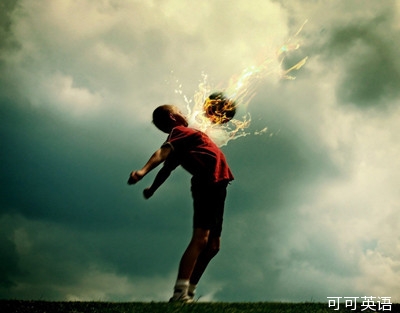The teenage brain is special. Less plastic than a child's developing brain, but not yet with all of the executive functions of an adult noggin. And that makes them more vulnerable to long-term effects of head injury, according to new research. Especially when it comes to sports-related concussions.
青少年的大腦很特殊,它既沒有兒童的大腦可塑性強,也不完全具備成人大腦的執行功能。最新調查表明,青少年的腦部受傷后更易受到長期影響,特別是在涉及體育相關的腦震蕩時。

In football, soccer, hockey or rugby, the top-front of the head usually receives the brunt of the blow. And that region is where the all-important executive function areas are forming for teenagers: the frontal cortex.
在足球,曲棍球或橄欖球運動中,頭部的最前端常常會受到沖擊力的打擊。而這一區域正是青少年所有重要執行功能正在形成的地方——前額葉。
To learn more, researchers recruited 96 male sports participants ages nine through 26--half of whom had had a diagnosed concussion in the past year. Using a battery of memory, attention, motor tests and EEG monitors, the researchers found that all of the concussed athletes showed reduced working memory.
為了了解更多,研究人員招募了96名年齡在9至26歲之間的男性運動參與者,他們中幾乎有一半曾被診斷出腦震蕩。經過一系列對記憶力、注意力、運動能力的測試以及腦電圖監測,研究人員發現所有患有腦震蕩的運動員記憶力減退了。
But the adolescents had the most cognitive impairment, even if months had passed since their injury, and they reported feeling just fine. The findings are in the journal Brain Injury.
即使在受傷幾個月后,傷者均感覺良好的時候,青少年表現出來的認知障礙仍然最為嚴重。這項研究發表在《腦損傷》期刊上。
So for high school athletes, a rough hit could lead to problems lasting longer than a bad headache.
因此對于高中運動員來說,一次嚴重的打擊帶來的不僅僅是劇烈的頭痛,還會導致更持久的問題。
原文譯文屬可可原創,未經允許請勿轉載!












